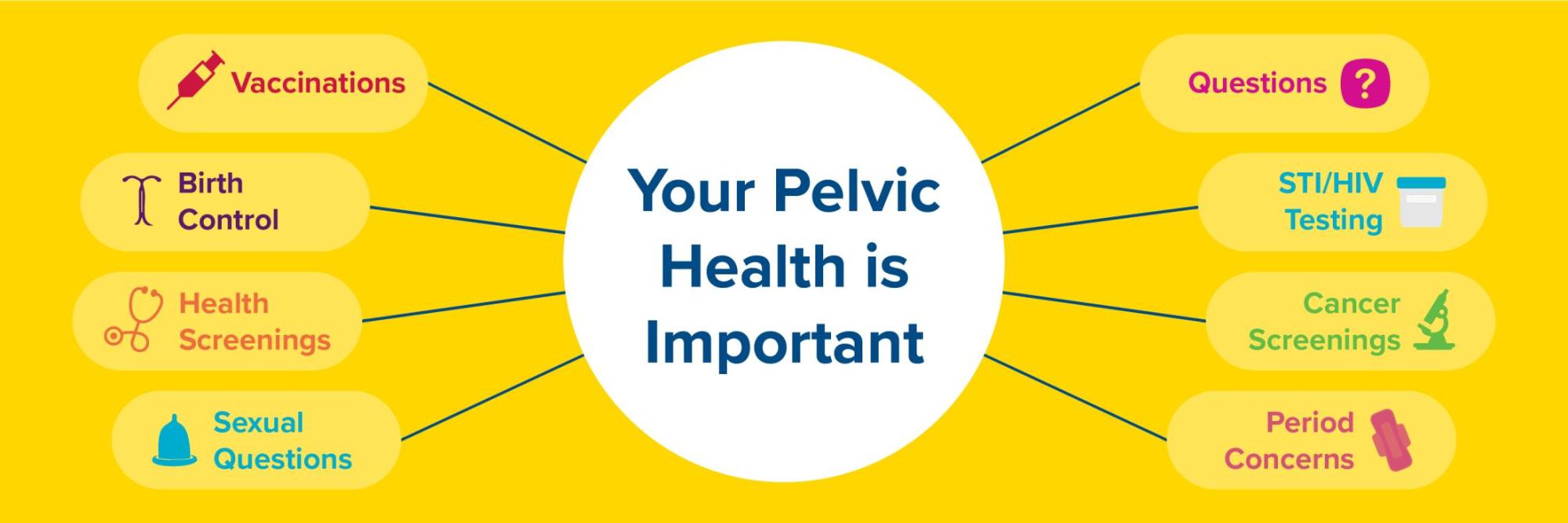Get a Wellness Visit Anually
Get a Wellness Visit Anually
Wellness visits are like physical exams, but they aren’t always “physical.” These visits include talking about well-being and answering questions you have about your preventive health (e.g., cholesterol, physical activity, substance use, etc.). During your wellness visit, your height, weight, and blood pressure will be checked1. You may be asked to undress; however, this depends on the exams to which you consent.
Starting at age 21, wellness visits may include a Pap test (aka Pap smear)2 for people with a cervix. A Pap test is a test used to detect the presence of abnormal cells on the cervix that could lead to cervical cancer. Pap tests find cellular changes caused by the human papillomavirus (HPV). During a Pap test, a provider uses a speculum to separate the walls of the vagina and collects a small sample of cells from the cervix (the donut-shaped tissue that connects the vagina to the uterus). These cells are then sent to a lab for analysis. Pap tests only take a few minutes. Although Pap tests may be uncomfortable, they should not hurt.
It is important to note that abnormal Pap test results mean there may be abnormal cell changes in your cervix, but that does not always mean a person has cervical cancer.

